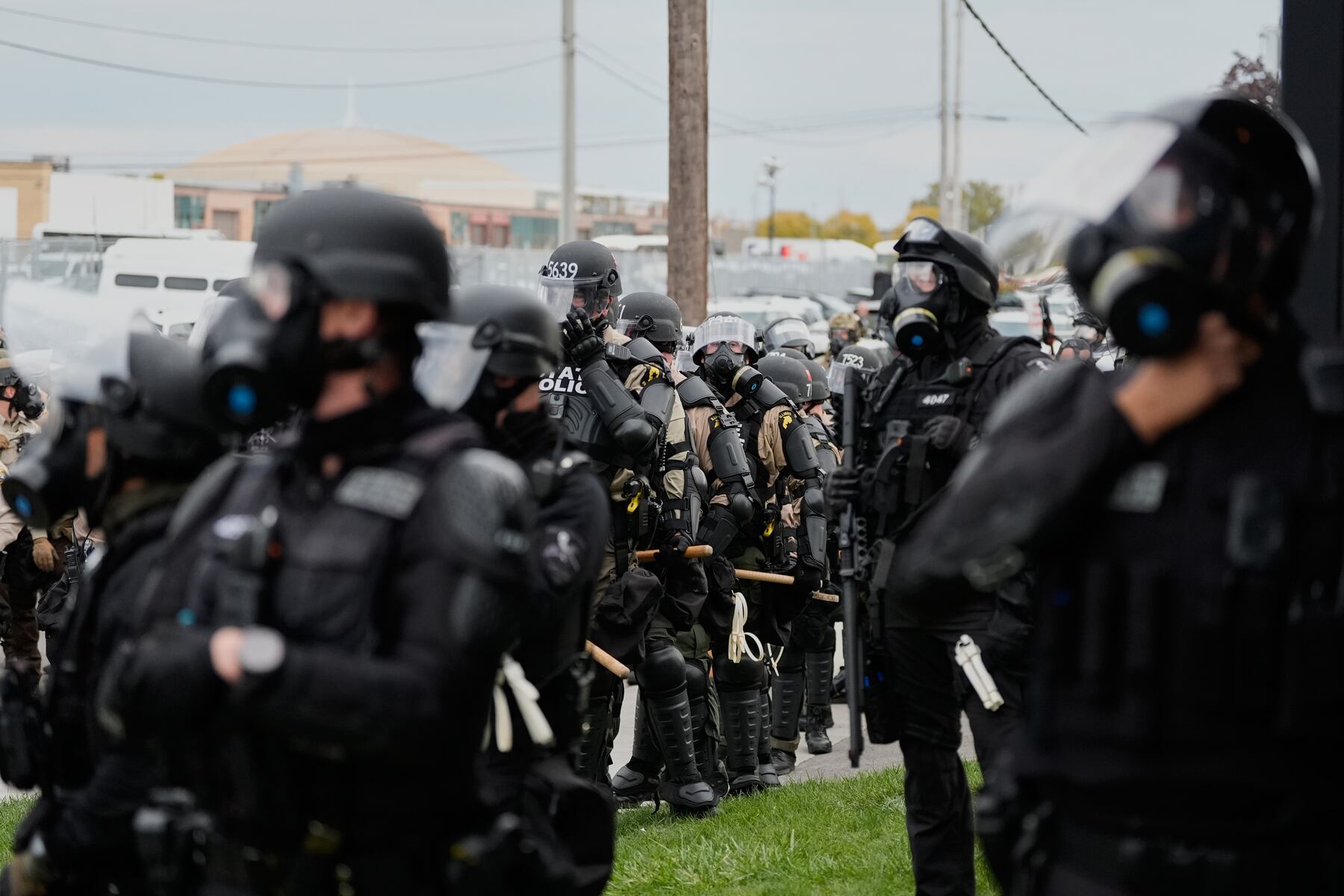A federal judge has mandated significant improvements at a U.S. Immigration and Customs Enforcement (ICE) facility in Broadview, Illinois, following a lawsuit from detainees alleging “inhumane” conditions. On March 13, 2024, U.S. District Judge Robert Gettleman issued a temporary restraining order requiring authorities to enhance living conditions within 14 days.
The judge’s order specifies that detainees must be provided with essential items, including clean bedding mats, adequate sleeping space, soap, towels, toilet paper, toothbrushes, toothpaste, menstrual products, and prescribed medications. Judge Gettleman emphasized the urgency of the situation, stating, “People shouldn’t be sleeping next to overflowing toilets. They should not be sleeping on top of each other.”
Improvement mandates include cleaning the holding rooms twice daily and ensuring detainees can shower at least every other day. The order also stipulates that inmates must receive three full meals each day along with bottled water upon request. Advocates for detainees have raised concerns about the facility’s conditions, which have been criticized by various members of Congress. Over the past few weeks, tense demonstrations have occurred outside the facility, with advocates calling for immediate reforms.
A spokesperson for the Department of Homeland Security defended the facility’s practices, asserting that detainees are provided with adequate food, water, and communication access. Tricia McLaughlin, the spokesperson, claimed that allegations of substandard conditions were unfounded, attributing them to misinformation.
After a hearing on March 12, Judge Gettleman described the alleged conditions as “unnecessarily cruel,” citing testimony about overflowing toilets, overcrowded cells, and poor-quality drinking water. He mentioned that he found witnesses to be “highly credible,” which influenced his decision to issue the order.
As part of the ruling, detainees must be allowed to call their lawyers privately at no cost, and they are to be provided with a list of pro bono attorneys in both English and Spanish. The judge also prohibited ICE agents from misrepresenting documents that detainees are required to sign. He requested a status report on compliance with his order by noon on March 15, acknowledging the challenges in implementing such changes.
Attorneys representing the plaintiffs welcomed the judge’s decision, framing it as a critical step towards better conditions for detainees. Alexa Van Brunt of the MacArthur Justice Center expressed relief, stating, “They cannot slip in a form written in a language somebody doesn’t understand and then all of a sudden the person gets whisked out of the country. That coercion has got to stop.”
Legal representatives are also seeking documents related to the facility’s detention policies, operational standards, and food and medication procurement. They aim to gain insight into the practices at Broadview as they continue their legal challenge.
In a separate legal matter, Senior Border Patrol official Greg Bovino defended the use of force by agents accused of employing excessive tactics, such as pepper balls and tear gas, against demonstrators protesting federal immigration policies. During a deposition, evidence was presented showing Bovino tackling a protester at a demonstration outside the Broadview facility.
In response to ongoing scrutiny, U.S. District Judge Sara Ellis has previously ordered agents to wear badges and banned specific riot-control techniques against peaceful protesters and journalists. She has requested regular updates on ICE’s operations in the Chicago area, demonstrating a commitment to overseeing federal conduct amid rising tensions.
Witnesses have reported that ICE agents have used excessive force during protests. Leslie Cortez, a youth organizer, recounted her experience of having a gun pointed at her while she was documenting arrests outside a Home Depot. Other witnesses, including members of the Chicago Newspaper Guild, testified about being subjected to rubber bullets and tear gas during protests.
The recent developments at the Broadview facility and the broader scrutiny of ICE practices highlight ongoing national debates about immigration enforcement and detainee rights. As federal authorities work to comply with court mandates, advocates are determined to continue their fight for improved conditions and accountability within the immigration system.
